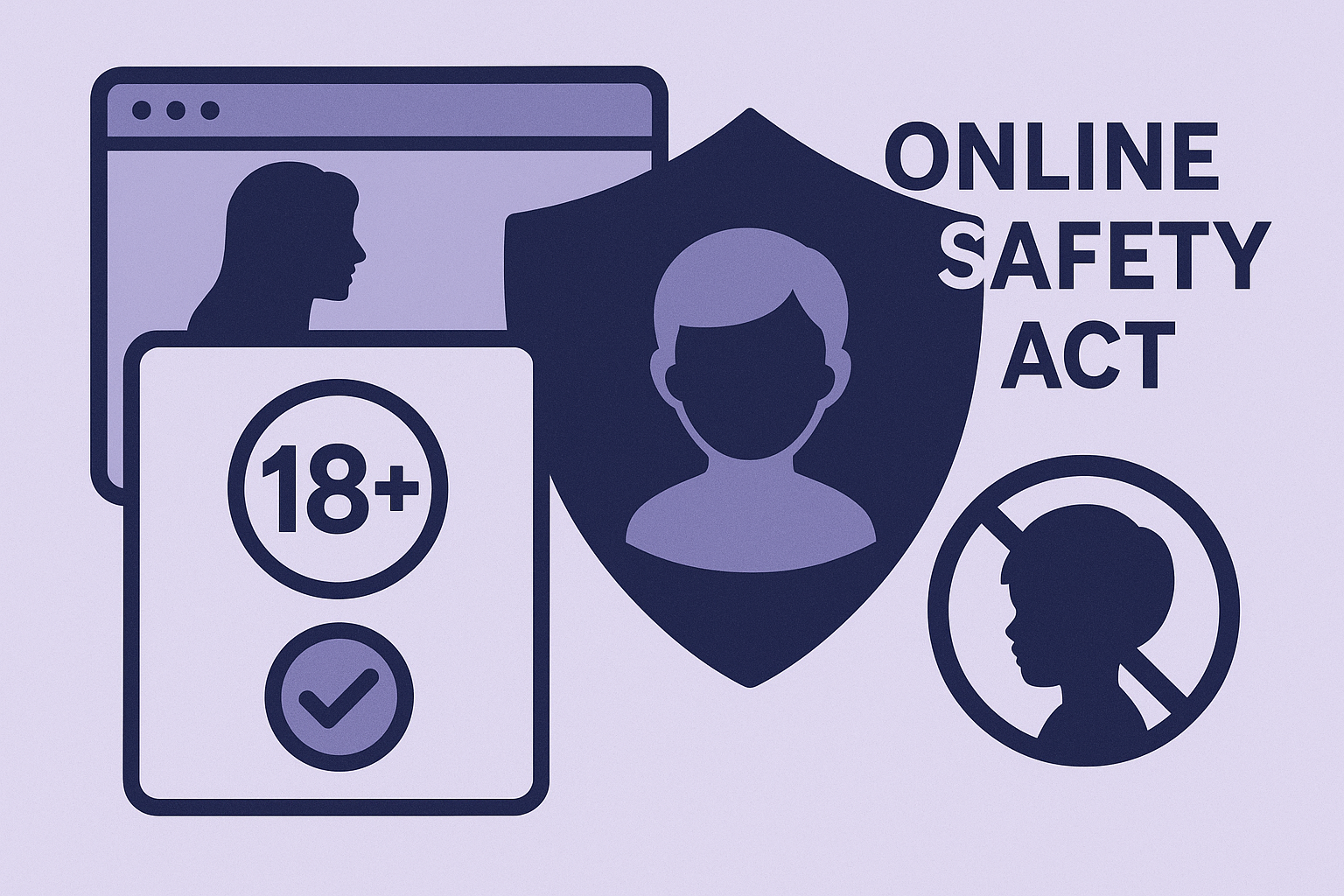1. Overview: The Online Safety Act & July 2025 enforcement
The Online Safety Act 2023, which received Royal Assent on 26 October 2023, came into full enforcement on 25 July 2025. From that date, platforms accessible in the UK—regardless of where they’re based—must implement systems to protect children and adult users from harmful or illegal content. Ofcom now leads enforcement under risk‑based duties and can issue fines up to £18 million or 10% of global turnover. theguardian.com en.wikipedia.org
Milestones include enforced risk assessments, robust moderation systems, transparent reporting tools, algorithm accountability, and especially “highly effective” age assurance for adult content sites. natlawreview.com
2. Implement privacy‑respecting age assurance
Adult content platforms must use highly effective age verification systems to prevent underage access. This could include biometric facial age estimation (with no storage), or third-party ID checks.
Platforms like Domin8trix are reviewing their age gate processes to balance privacy with compliance. Using lightweight, frictionless tools—while communicating data safety—helps reduce drop‑off.
3. Enhance transparency in content moderation
To meet Ofcom standards, platforms must offer:
- Clear content ratings
- Easy reporting mechanisms
- Human moderation systems or audit trails for AI tools
These practices don’t just ensure compliance—they build long‑term user trust and performer confidence. Whether you’re hosting cams, clips, or private shows, users should feel they can report and respond safely.
4. Educate your community
Platforms need to proactively inform their users—on both sides of the camera.
- For customers: Clarify what age checks will be required, how privacy is protected, and why it’s happening.
- For performers: Offer clear documentation on verification procedures, data storage, and content eligibility under the new law.
5. Support industry-wide advocacy
While safety is essential, open dialogue is vital to keep the law effective and fair. Many industry professionals worry about:
- Disproportionate impact on smaller platforms
- Data security and retention risks
- VPN avoidance undermining child protections
Organisations like EFF and the Open Rights Group are pushing for more privacy-conscious solutions. Businesses and creators should lend their voices to ensure enforcement doesn’t unintentionally punish lawful creators or drive users underground.
6. Navigating the Future: Key Actions for the Adult Content Industry
1. Prioritise early compliance
All platforms—regardless of size—must complete illegal and children’s content risk assessments by 31 July 2025, as mandated in Ofcom’s implementation roadmap. Risk assessments, record-keeping, and internal training are critical foundations for lawful operation in the UK market.
7. Conclusion
The Online Safety Act represents a transformative shift in UK regulation—placing platforms, performers, and customers under stricter scrutiny for safety and age assurance. While child protection is the clear priority, the practical implications—verification burdens, privacy trade‑offs, platform risk, and free‑speech concerns—are significant.
Ultimately, ensuring real safety requires more than legislation: it calls for responsible design, robust communication, and a shared commitment across the camera‑based industry to protect minors without sacrificing performer rights or user trust.




0 Comments